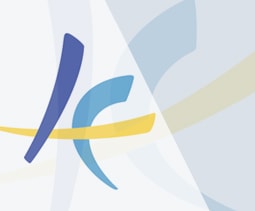‘Widening Participation on the Road to Membership’ supported by SIDA
‘Widening Participation on the Road to Membership’ was a project funded by the Swedish developmental agency Sida in the Western Balkans region. The project, which was contracted by the Royal College of Music in Stockholm and co-ordinated by the AEC, ran from 15 March 2009 until 31 December 2011. It aimed to tune academies with European educational and administrative standards at the higher education level, and to widen participation in higher music education by better and easier access for children and youth to early stage higher music education.
The project partners were:
• Academy of Arts of the University of Banja Luka,
• Music Academy of the University of Sarajevo,
• Faculty of Music of the University of Arts in Belgrade,
• Music Academy of the University of Montenegro, and
• Academy of Arts of the University of Novi Sad.
To achieve the project results, several objectives had been set. In order to tune Western Balkan music academies with European educational and administrative standards at higher education level, knowledge and skills of academic and management staff in the various technical principles of the Bologna Declaration process needed to be developed (e.g. learning outcomes, curriculum design, credit points, internal quality assurance, external quality assurance and accreditation, etc), as well as some additional issues related to ‘Bologna’ (doctoral programmes, institutional governance including the role of students, alumni policies, etc). Furthermore, international and European cooperation tools and methods needed to be developed with the aim to enhance the attractiveness of the academies to foreign students and to prepare participation in the EU programmes.
To widen participation in higher music education, the position of the academies needed to be further developed as regional centres of expertise for music education through an improved offer of continuing professional development provision to teachers. Furthermore, expertise in the area of pre-college training needed to be developed in the area of pre-college training through cooperation with institutions at the pre-college training level in other European countries.
To achieve these objectives, the partners undertook a diverse set of activities. The partners participated in international conferences such as the AEC Annual Congress and ‘Polifonia’ dissemination conferences; they participated and hosted seminars in the fields of Bologna process, research in music and instrumental/vocal teacher training. They also developed their international dimension through improvement of their websites and promotional materials and organised artistic activities (e.g. master classes, workshops, summer academies). Counsellors visited the same academies 4 times over the project period to assist academies with issues relevant to their current development.
The partners also organised open house activities as well as local and regional concerts, and developed and implemented continuing professional development courses for music school teachers in the region.
In two consecutive years, a European Student Chamber Orchestra (ESCO) was formed and made a tour around four of the five Western Balkan partner academies. The orchestra was composed out of the most talented music students coming from over 15 conservatoires in Europe. Due to the enormous success of ESCO 2010, a second edition was realised in October 2011: ESCO 2011.
At the end of 2011 an Innovative Conservatoire Seminar was hostel by the Academy of Arts in Banja Luka (Bosnia-Herzegovina). The Innovative Conservatoire is “an international collaboration to stimulate knowledge exchange, innovation and reflective practice in conservatoires.” The ICON Seminar in Banja Luka was especially organised for the academies participating in the project and was aiming at needs and incentives their teachers encounter in their daily music teaching practices.
A final report on the project wa produced at the beginning of 2012. An executive summary of the report can be found here. The integral version of the report is available upon request.






